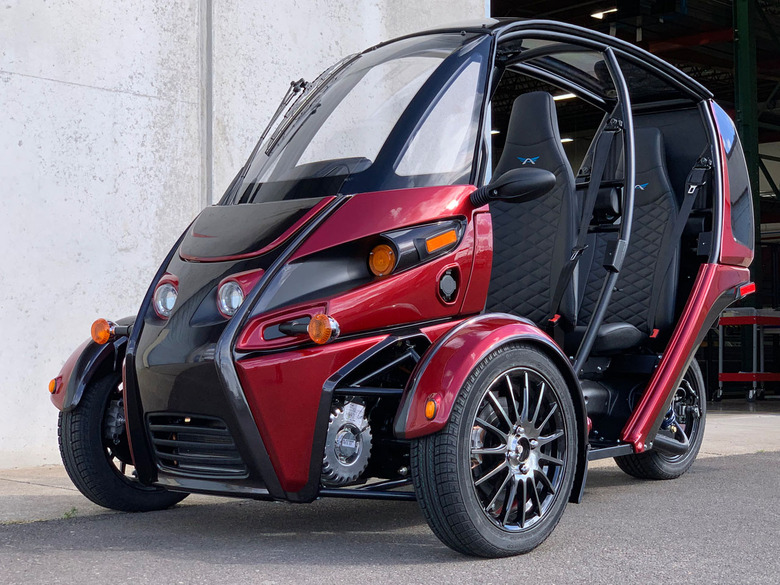Arcimoto Is Planning A Tilting Electric Three-Wheeler And It Sounds Epic
Get ready for the electric vehicle market to lean over, with Arcimoto announcing it's acquired a tilting trike specialist to use the tech in future EV three-wheelers. Based in Oregon, Arcimoto currently offers all-electric vehicles for public and business use, with its FUV – or "Fun Utility Vehicle" – available to preorder from around $18k.
Today's deal sees Arcimoto snap up Tilting Motor Works, which offers a leaning kit for motorcycles. Its TRiO system can adapt existing bikes, promising to keep their natural lean but adding stability with a second front wheel. It's currently offered for Harley-Davidson, Honda, and Indian models, priced at $14k plus installation.
Now, TRiO will be used for future Arcimoto trikes. The system will allow the EVs to lean into corners for more engaging driving dynamics, as well as lock upright when at a stop. The extra front wheel aids in traction too, Tilting Motor Works says, as well as improving braking; the company will continue to offer its kits for traditional motorcycles as well.

Arcimoto's current FUV supports two occupants, sitting one behind the other. It has a 75 mph top speed from dual electric motors, and a range of 102 miles of urban driving; the doors are detachable, and rather than a steering wheel inside there are handlebars with heated grips. Currently, the company is taking preorders in Florida and on the west coast of the US.
It's not the only vehicle Arcimoto has in mind, however. Late in 2020, the company showed off its latest prototype, a three-wheeler it called the ROADSTER. Roofless, and with a chopped-down windshield, it promises a more traditional take on the electric trike segment.
Electric drive and three wheels is arguably where some of the most interesting experiments are taking place in mobility right now. Last month, for example, we took the ElectraMeccanica Solo EV out for a spin, a single-seat electric trike that aims to reboot commuting. Based on the fact that almost 90-percent of Americans typically drive alone, it trades cabin space and seating for much cheaper running costs.
What it doesn't do, however, is tilt. For an example of that, you have to look to something like Toyota's i-ROAD, a distinctive electric three-wheeler that could lean into corners according to how aggressively you steered. Offered in select locations in Japan, and part of Toyota's aggressive electrification push for the next few years, the i-ROAD was never officially offered in the US.
